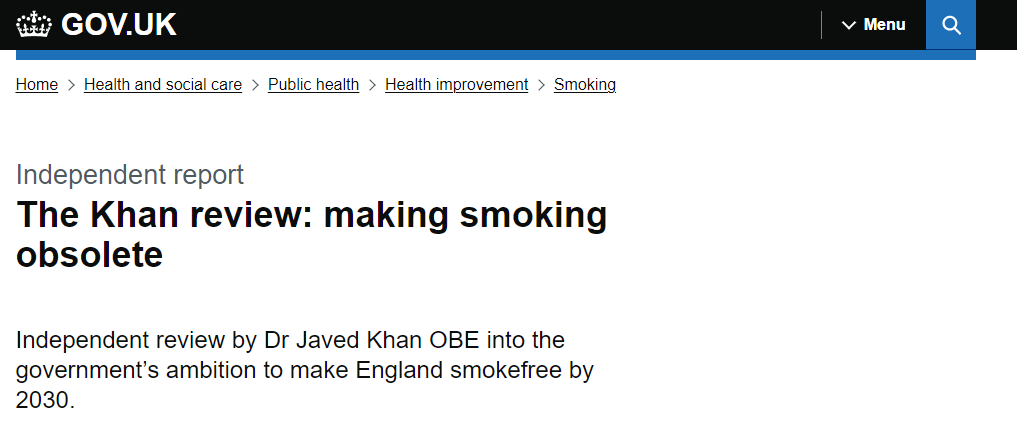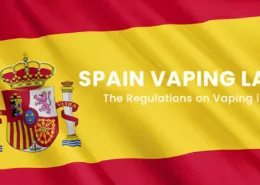What Does the Vape Tax Adjustment in the UK Reveal?
The UK is considering adjusting its tax policy for electronic cigarettes due to concerns over the increasing use of disposable e-cigarettes, especially among young people. The proposed measures include imposing a new tax category on electronic cigarette products, further improving related standards for packaging, marketing, and flavors. However, it is unlikely that the current proposal under review will completely ban the sale of disposable electronic cigarettes. The adjustment reflects the UK government’s recognition of e-cigarettes as tobacco harm reduction products, and its efforts to establish reasonable rules and adjust them as necessary over time.

When a country or region has clear definitions and standards for electronic cigarette products, and regulatory policies are put in place to allow electronic cigarettes to circulate within a standardized framework, the issue of electronic cigarette taxation follows. Each country and region has its own tax rules for e-cigarettes, which are often adjusted according to actual conditions. In the UK, which is vigorously promoting the harm reduction strategy of electronic cigarettes, a review of electronic cigarette taxation is underway.
A new tax category in the works
This tax adjustment originated from a “Khan Review: Making Smoking Obsolete” report by the UK government, which aimed to analyze whether the UK could achieve a smoke-free society by 2030.

Although the UK government recognizes electronic cigarettes as a smoking cessation tool, the use of disposable electronic cigarettes has increased significantly, especially among young people. In order to solve the problem of young people using disposable electronic cigarettes, the UK government has to consider a series of measures, such as imposing a new tax category on electronic cigarette products, further improving related standards for packaging, marketing, and flavors. However, it is unlikely that the current proposal under review will completely ban the sale of disposable electronic cigarettes.
A spokesperson for the UK Department of Health said: “We have established strict regulations to prevent underage use of electronic cigarettes, and we have taken measures such as legislating for age restrictions on purchase, restricting nicotine content, refillable capacity, size of vape liquid container, labeling, and advertising restrictions to protect minors from the harm of electronic cigarettes. The ingredients and promotions of electronic cigarettes are prohibited from containing any content that may be particularly attractive to those under 18, such as familiar figures or celebrities.”
Rising and falling tax adjustments coexist
Since last year, the Local Government Association (LGA) in the UK has been urging the UK government to reduce the value-added tax on electronic cigarette products from 20% to 5%, so that the tax rate for electronic cigarettes is consistent with the tax rate for conventional NRT such as nicotine gum and patches.
Representatives of the LGA in the English and Welsh parliaments believe that the current law imposes a 5% tax rate on “medicines designed to help people quit smoking.” Increasing evidence shows that electronic cigarettes and related accessories are important ways to help people quit smoking, and electronic cigarette products can reduce the pressure of serious illnesses and deaths on health and care services. Given the existing scientific evidence that electronic cigarette products can indeed help people quit smoking, fully comply with legal requirements, electronic cigarettes should be subject to a tax rate of 5% instead of the current 20%.
Conclusion
The UK’s tax policy adjustment for electronic cigarette products reflects both rising and falling according to relevant legal provisions, reflecting the UK government’s recognition of electronic cigarettes as tobacco harm reduction products and the establishment of reasonable rules, and then making timely adjustments based on these rules. Compared with the US, the UK’s electronic cigarette tax rate adjustment also reveals different attitudes of different governments towards electronic cigarette products.
- Is Vaping and Driving Illegal in Vermont? (2025 Guide) - July 18, 2025
- Vaping Laws in Vermont : A Comprehensive Guide for 2025 - July 18, 2025
- Malaysian Sarawak Considers Banning Vape Product Sales - July 18, 2025








